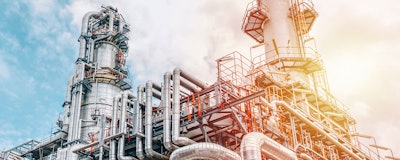
 Megan Ray Nichols
Megan Ray NicholsWhile the petrochemical industry tends to have a bad reputation among environmental activists, many of our nation’s largest facilities are making leaps and bounds toward a cleaner, healthier and safer production environment.
As seen in a recent upgrade to BP’s Cooper River Facility in Berkeley County, NC, next-gen solutions are also able to cut energy consumption, boost productivity and restore some faith in an industry that has taken some hits over the past 10 or 20 years.
Common Chemical Hazards
Some of the most common hazards in the petrochemical industry revolve around the high toxicity in the chemicals we use on a day-to-day basis. The most common chemicals include fuel oil, naphtha, ethylene, propylene, benzene, sulfur dioxide and various nitrous oxides, but numerous other chemicals could be present depending on the size, scale and scope of your operations.
Although many tend to view these chemical spills as extremely isolated incidents that only occur at the point of extraction, there are risks during the storage, transportation and laboratory testing phases, too. Such occurrences could affect company employees and, in some cases, the general population.
Strategic Safety Management
A strategic safety management plan can go a long way in ensuring the safety of your operations during all phases of production, transportation and storage. Improved safety is usually a byproduct when installing upgrades and renovations such as those at BP’s Cooper River plant, but some facilities don’t have the option of adding next-gen equipment and hardware to their operation.
Proper planning, implementation and supervision make it possible to maintain a stellar safety record without the need for fancy machinery. Establishing a dedicated team of environmental experts to look after the health and safety of your workers as well as that of the environment ensures compliance with local and federal regulations, budget constraints and the latest safety standards.
Process Safety
While it’s crucial that we maintain tight control over resources like natural gas and crude oil, it’s equally important that we’re able to monitor the processes involved in refining, transporting and storing these resources. Consider:
- There are less than 200 oil refineries in the U.S., but there have been more than 500 refinery-related accidents reported to the EPA since 1994. Figures like this illustrate the need for a stringent on-site safety protocol at every refinery and facility.
- Use explosion-proof equipment when storing any chemicals, raw materials or resources. Make sure to have your equipment inspected on a regular basis to ensure its condition over the course of time.
- Drivers who are transporting raw materials, chemicals or refined resources must obey strict safety guidelines at all times. These guidelines vary depending on the nature of the materials, the amount and even local regulations.
Although there are very serious risks in every phase of the typical petrochemical operation, many of these can be mitigated by making sure your employees follow the standard safety procedures with every step.
Occupational Safety
The guidelines in occupational safety apply specifically to the working environment. Unsafe working conditions, lack of protective equipment and misinformation on behalf of employees are all commonly cited by the Occupational Safety and Health Administration (OSHA).
Ensuring your employees’ knowledge on the guidelines established by OSHA and the Environmental Protection Agency (EPA) is the first step in maintaining a safe workplace. Testing your employees on the material, either on a consistent basis, randomly or as part of a promotion, can go a long way in preserving your safety record for years to come.
Winners All Around
Although some of the new upgrades at BP’s Cooper River facility are certainly meant to aid productivity and profitability, the increased safety is a welcomed byproduct. Not only do renovations like this help our nation’s top utility providers stay in business, but they can also improve the health and safety of the surrounding communities.






















